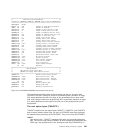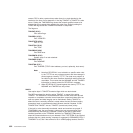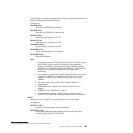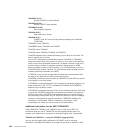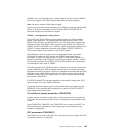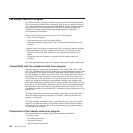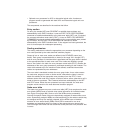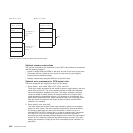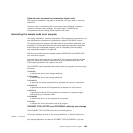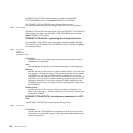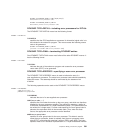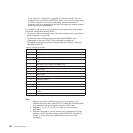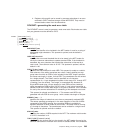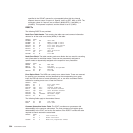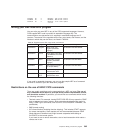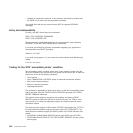Optional error processor for interactive logical units
Only one error processor is supplied for interactive LUs: group index 1, with error
code X'DC'.
This error code, in combination with a user sense value of X'081B', indicates a
‘receiver in transmit mode’ condition. The action flags in TWANPFW are
manipulated to allow the failing SEND request to be retried.
Generating the sample node error program
The routing mechanism, common subroutines, CICS-supplied error processors, and
user-supplied error processors are generated by means of DFHSNEP macros.
The sample node error program and table need to be translated, assembled, and
link-edited. For information about the job control statements required to assemble
and link-edit user-replaceable programs, refer to “Assembling and link-editing
user-replaceable programs” on page 436.
Note that you should code the translator options NOPROLOG and NOEPILOG in
your node error program.
Note also that an extra 24 bytes are required for the common subroutines register
save area, and further space is required for the error processor save area. The
CICS sample processors use 4 bytes of this area.
The DFHSNEP macro to generate the sample node error program has seven types,
as follows:
TYPE=USTOR
to indicate the start of user storage definitions.
TYPE=USTOREND
to indicate the end of user storage definitions.
TYPE=INITIAL
to generate the routing mechanism and, optionally, the common subroutines.
TYPE=DEF3270
to generate the default CICS-supplied error processors for 3270 devices.
TYPE=DEFILU
to generate the default CICS-supplied error processor for interactive logical
units operating in contention mode.
TYPE=ERRPROC
to indicate the start of a user-supplied error processor.
TYPE=FINAL
to indicate the end of the sample node error program.
DFHSNEP TYPE=USTOR and USTOREND—defining user storage
The DFHSNEP TYPE=USTOR macro has the following format:
This macro indicates the start of user storage definitions. It must be followed by
your storage definitions, and then by DFHSNEP TYPE=USTOREND. If you use
DFHSNEP TYPE=USTOR
Chapter 9. Writing a node error program 499



